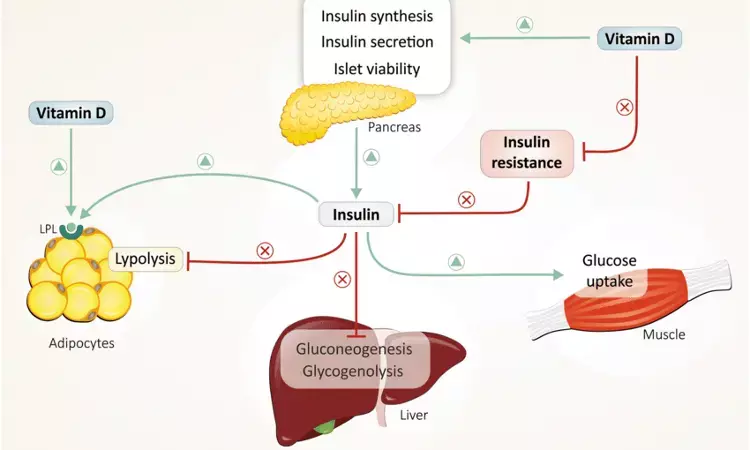- Home
- Medical news & Guidelines
- Anesthesiology
- Cardiology and CTVS
- Critical Care
- Dentistry
- Dermatology
- Diabetes and Endocrinology
- ENT
- Gastroenterology
- Medicine
- Nephrology
- Neurology
- Obstretics-Gynaecology
- Oncology
- Ophthalmology
- Orthopaedics
- Pediatrics-Neonatology
- Psychiatry
- Pulmonology
- Radiology
- Surgery
- Urology
- Laboratory Medicine
- Diet
- Nursing
- Paramedical
- Physiotherapy
- Health news
- Fact Check
- Bone Health Fact Check
- Brain Health Fact Check
- Cancer Related Fact Check
- Child Care Fact Check
- Dental and oral health fact check
- Diabetes and metabolic health fact check
- Diet and Nutrition Fact Check
- Eye and ENT Care Fact Check
- Fitness fact check
- Gut health fact check
- Heart health fact check
- Kidney health fact check
- Medical education fact check
- Men's health fact check
- Respiratory fact check
- Skin and hair care fact check
- Vaccine and Immunization fact check
- Women's health fact check
- AYUSH
- State News
- Andaman and Nicobar Islands
- Andhra Pradesh
- Arunachal Pradesh
- Assam
- Bihar
- Chandigarh
- Chattisgarh
- Dadra and Nagar Haveli
- Daman and Diu
- Delhi
- Goa
- Gujarat
- Haryana
- Himachal Pradesh
- Jammu & Kashmir
- Jharkhand
- Karnataka
- Kerala
- Ladakh
- Lakshadweep
- Madhya Pradesh
- Maharashtra
- Manipur
- Meghalaya
- Mizoram
- Nagaland
- Odisha
- Puducherry
- Punjab
- Rajasthan
- Sikkim
- Tamil Nadu
- Telangana
- Tripura
- Uttar Pradesh
- Uttrakhand
- West Bengal
- Medical Education
- Industry
Vitamin D3 Improves Glucose Levels but Shows Limited Impact on Insulin Sensitivity among women with PCOS: Study

Researchers have found in a new study that Among women with PCOS, Vitamin D3 supplementation significantly improves glucose metabolism, as seen by reduced fasting and 2-hour blood glucose levels. However, it shows minimal overall effect on insulin sensitivity markers like HOMA-IR. Despite an 84% increase in blood 25-hydroxyvitamin D levels, the impact on insulin resistance was complex and subtle.
While some correlation was noted between changes in HOMA-IR and Vitamin D levels, no consistent improvement in insulin sensitivity was observed across subgroups. Higher doses and longer studies are needed to fully understand vitamin D’s role in glucose regulation.
Among premenopausal women, polycystic ovarian syndrome (PCOS) is one of the most ubiquitous endocrine and metabolic conditions. Abdominal adiposity, insulin resistance, obesity, metabolic diseases, and cardiovascular hazards are often associated with PCOS. This investigation aims to decipher the influence of oral Vitamin D3 supplementation (2000 IU/day for three months) on glucose metabolism in PCOS women. 123 subjects (females 16 to 40 years of age) were arbitrarily allocated to three cohorts (n = 41 in each cohort) Each participant received two tablets daily and a sachet every month for three months (Group I: Vitamin D3 Tablets + placebo sachets; Group II: Placebo Tablets + Vitamin D3 sachets; Group III: Tablets + Placebo sachets). RESULTS: Among 123 PCOS subjects, 93.4% exhibited hypovitaminosis D.
The baseline 25- hydroxyvitamin D (25(OH)D) concentration of 13.76 (SD ± 10.61) ng/ml increased by 86.84% post-intervention. Groups I and II (active group) depicted substantial diminution in pre-treatment fasting and 2-h blood glucose, with no substantial change in the HOMA-IR. Group III (placebo) showed no improvement in vitamin D status or HOMA-IR. Overall, we observed no substantial HOMA-IR improvement with vitamin D subjunction. However, subgroup analysis revealed a statistically significant enhancement in HOMA-IR for subjects achieving a two-fold upsurge in post-supplementation 25(OH)D levels (≥ 20 ng/ml) compared to those without this increase (p = 0.025).
Vitamin D3 supplementation improves glucose metabolism, as demonstrated by lower fasting and 2-hour blood glucose levels, but overall has no substantial repercussion on measures of insulin sensitivity like HOMA-IR. A larger vitamin D3 dose and an extended follow-up study are essential to comprehend the complex physiology of vitamin D and glucose homeostasis. The cohort's mean blood 25-hydroxyvitamin D concentrations were successfully boosted by 84% by Vitamin D3 dosage; yet, the influence on insulin resistance markers displayed a subtle complexity. A relationship was found amid the absolute variation in HOMA-IR and the percentage variation in Vitamin D. Nevertheless, there was no substantial general alteration in the mean HOMA-IR across different subgroups.
Reference:
Masoodi, Shariq Rashid, et al. "Polycystic Ovary Syndrome and Vitamin D Status - Impact of Vitamin D Supplementation On Insulin Resistance." Reviews On Recent Clinical Trials, 2025.
Dr. Shravani Dali has completed her BDS from Pravara institute of medical sciences, loni. Following which she extensively worked in the healthcare sector for 2+ years. She has been actively involved in writing blogs in field of health and wellness. Currently she is pursuing her Masters of public health-health administration from Tata institute of social sciences. She can be contacted at editorial@medicaldialogues.in.
Dr Kamal Kant Kohli-MBBS, DTCD- a chest specialist with more than 30 years of practice and a flair for writing clinical articles, Dr Kamal Kant Kohli joined Medical Dialogues as a Chief Editor of Medical News. Besides writing articles, as an editor, he proofreads and verifies all the medical content published on Medical Dialogues including those coming from journals, studies,medical conferences,guidelines etc. Email: drkohli@medicaldialogues.in. Contact no. 011-43720751


